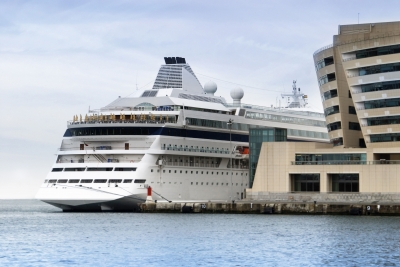composite boat propellers
Better, Smarter Propeller Construction and Design
Just about every longtime boat owner knows the sinking feeling that accompanies hitting a submerged obstacle. While most of these incidents result in little permanent harm, a substantial portion of them leave the affected boat stranded. Typically, this is because the boat's propeller sustains too much damage in the impact, as it is among the most vulnerable and important parts of the boat.
With conventional propellers made of metal or similarly stiff, unyielding materials, this can easily ruin a day on the water. Steel and aluminum are simply not suited to endure such impacts without permanent damage, because they are incapable of flexing and yielding when the fast-spinning propeller strikes something substantial. Even a relatively glancing blow, in fact, can take a large enough chunk out of a metal propeller that it will thereafter not be useful for its job of providing propulsion for the boat.

A Boat Propeller made of a more suitable material, though, can often survive such impacts. For example, Composite Boat Props that are made from appropriate mixtures of polymers can be much more resilient than metal ones, and this can make a big difference when impacts of this sort happen. In fact, a Boat Prop of this kind can even sometimes live through a direct, high-speed encounter with a large, submerged rock, something that a metal one could never hope to do.
Boat propellers of this general style boast a number of other potential advantages, too. One of these is that they are often much easier to repair than traditional metal ones are, because they have been designed from the start for easy modification and substitution of parts. A propeller that is cast from a single piece of metal must typically be replaced when it fails, but a Boat Prop with interchangeable blades often only needs a quick swap-out of its blades before it is once again ready for action.
Because of the many advantages of propellers of this sort, they are becoming far more common than in the past. While metal propellers used to be the rule throughout the industry, they are slowly giving way to these of more suitable and appropriate design. Given that there are so many advantages to composite propellers of this general kind, many experts expect, in fact, that they will eventually become the standard, whether in terms of what typically ships with brand new boats and motors or what knowledgeable owners choose to buy on the aftermarket.